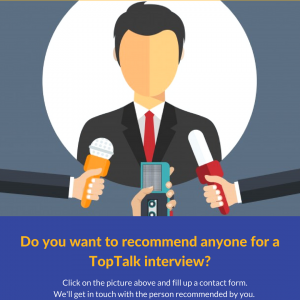 Matt Charney is the Chief Content Officer at Allegis Global Solutions and is a partner at Recruiting Daily. He also serves as an advisor to a number of high growth, VC backed technology startups focused on recruiting or hiring. You can follow Matt on Twitter @MattCharney or connect with him on LinkedIn: http://www.linkedin.com/in/
Matt Charney is the Chief Content Officer at Allegis Global Solutions and is a partner at Recruiting Daily. He also serves as an advisor to a number of high growth, VC backed technology startups focused on recruiting or hiring. You can follow Matt on Twitter @MattCharney or connect with him on LinkedIn: http://www.linkedin.com/in/
What does employee engagement mean to you?
Employee engagement, to me, is the degree to which workers actually care about the work that they’re doing. Pretty simple.
How to measure employee engagement?
It’s pretty hard since the concept of employee engagement is subjective; therefore, while there are a few outcomes that correlate to employee engagement, proving causation is an inherently impossible task in the absence of any generally accepted baselines. The best measurement, for me, is obviously attrition; engaged employees, statistically, almost never turnover voluntarily, meaning this is an imperfect, but fairly accurate, baseline. The most accurate, albeit admittedly skewed, way to measure employee feedback is by actually asking employees; there’s a reason employee surveys are fairly ubiquitous in HR. Increasingly, companies are asking their workers how likely they are to recommend working there to their friends or colleagues, and the resulting score, which is essentially a workplace net promoter score, is a really good indicator of how engaged your workers are. There are many secondary measures, including employee productivity, job satisfaction and business performance that have been shown to be linked to employee engagement, but these are more outcomes of strong employee engagement than indicators.
What are the common causes of employee disengagement?
Survey after survey suggests that people leave companies because of problems with their managers or coworkers, so not liking the people you work with is a pretty strong driver of disengagement. If you don’t really feel like you belong in a workplace, then it’s hard to take ownership and responsibility of your work or feel a personal stake in the bigger business – basically, the fundamental requirements for engagement to exist. This is why hiring for culture and chemistry are so important, and why team dynamics can make or break a company. The other primary causes are employees feeling like they’re not heard or that their input doesn’t matter or isn’t valued. Studies suggest that workers feel more engaged the more they’re actively solicited for their opinions or feedback, even if those suggestions are disregarded or ignored. Workers need to feel like they have a voice, and someone’s listening – even if they’re not.
What are the drivers of employee engagement in today’s fast-moving world?
The primary drivers haven’t changed all that much. The key element of engagement is trust; building trust requires companies to provide workers with as much autonomy and flexibility as possible. When employees are given the choice of when and how work gets done, then you’re creating a sense of ownership and shared responsibility that’s critical for engagement. Obviously, technology has enabled this to be scalable and sustainable, but the importance of flexibility is nothing new, and it’s long been linked to improved worker productivity and job satisfaction. The other driver is feeling aligned with the bigger business picture or mission, and having a sense that their jobs contribute to the company’s overall success. When workers can link their individual efforts to the collective outcome, then they’re much more likely to find their work fulfilling and meaningful – and, obviously, engagement.
What makes a really effective employee engagement programme? Any best practices to share.
Employee engagement is an outcome, not a goal, so if employee engagement initiatives are done independently, then they’re really unlikely to be impactful. Ensuring employees are engaged should underscore and inform every business or human capital decision a company makes; engagement isn’t a stand-alone strategy. It’s a fundamental business value every business should value.

1 thoughts on “Matt Charney, Chief Content Officer at Allegis Global Solutions & Executive Editor at Recruiting Daily”